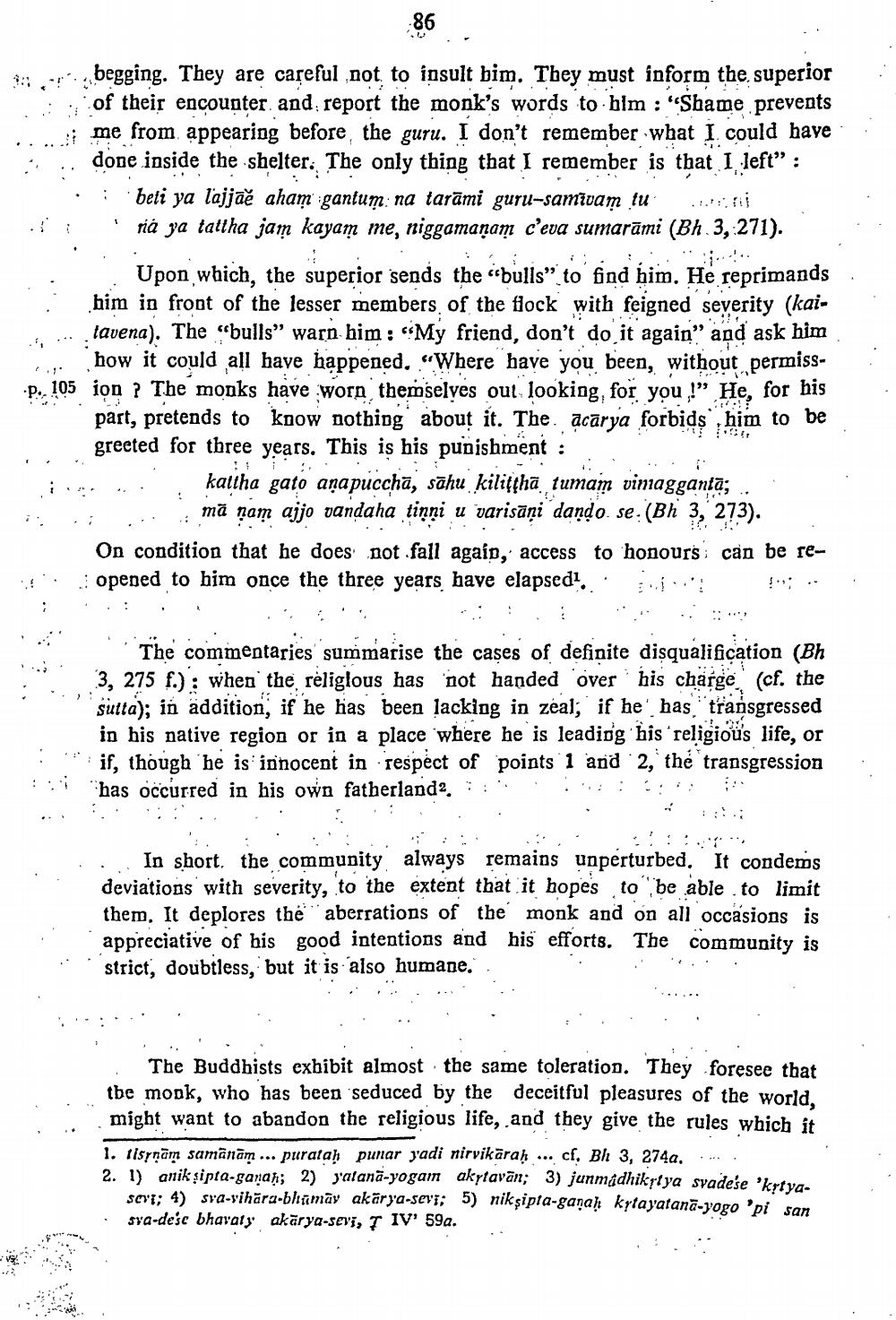________________
2
begging. They are careful not to insult bim. They must inform the superior of their encounter and report the monk's words to him: "Shame prevents me from appearing before the guru. I don't remember what I could have done inside the shelter. The only thing that I remember is that I left":
.5
17 beti ya lajjaě aham gantum na tarāmi guru-samivam tu
ria ya tattha jam kayam me, niggamanam c'eva sumarāmi (Bh. 3, 271).
:
Upon which, the superior sends the "bulls" to find him. He reprimands him in front of the lesser members of the flock with feigned severity (kaitavena). The "bulls" warn him: "My friend, don't do it again" and ask him how it could all have happened. "Where have you been, without permissp. 105 ion? The monks have worn themselves out looking, for you!" He, for his
11
2
part, pretends to know nothing about it. The acarya forbids him to be greeted for three years. This is his punishment :
kattha gato anapucchā, sāhu kiliṭṭha tumam vimaggantā, nam ajjo vandaha tinni u varisani dando se. (Bh 3,
mã
On condition that he does not fall again, access to honours can be reopened to him once the three years have elapsed1.
273).
The commentaries summarise the cases of definite disqualification (Bh 3, 275 f.) when the religious has not handed over his charge (cf. the sutta); in addition, if he has been lacking in zeal, if he has transgressed in his native region or in a place where he is leading his religious life, or if, though he is innocent in respect of points 1 and 2, the transgression has occurred in his own fatherland2.
In short, the community always remains unperturbed. It condems deviations with severity, to the extent that it hopes to be able to limit them. It deplores the aberrations of the monk and on all occasions is appreciative of his good intentions and his efforts. The community is strict, doubtless, but it is also humane.
The Buddhists exhibit almost the same toleration. They foresee that the monk, who has been seduced by the deceitful pleasures of the world, might want to abandon the religious life, and they give the rules which it
1. tisṛṇām samanām... purataḥ punar yadi nirvikāraḥ cf. Bh 3, 274a. 2. 1) anik sipta-ganaḥ; 2) yatana-yogam akytavän; 3) junmadhikrtya svadese 'krtyasevi; 4) sva-vihara-bhūmāy akarya-sev;; 5) niksipta-gaṇaḥ kṛtayatana-yogo 'pi san sva-dese bhavaty akarya-sevi, Ţ IV' 59a.
***




